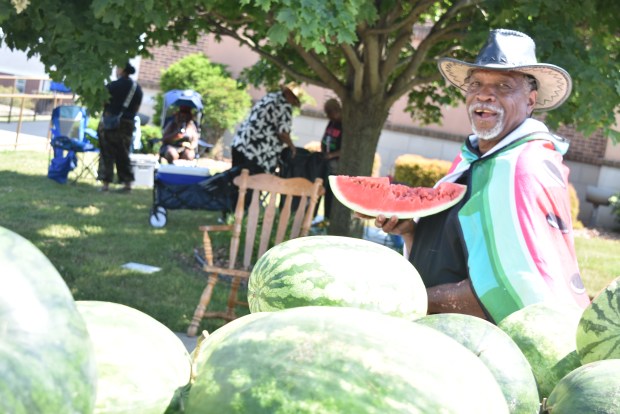Two more piping plover chicks have died since Thursday night after being observed lethargic and struggling in the protected area at Montrose Beach. Only one of this year’s hatchlings remains, less than two weeks since they were born, during which time their monitors said the chicks had “endeared themselves” to locals.
Monitors said in a Sunday post they remained grateful for the outpouring of love and support as they worked to understand what led to the deaths of their “precious chicks.” Necropsies are being performed to determine the factors that led to the quick loss.
Piping plover lovers in Chicago are mourning the losses after yearslong anticipation for Imani, born in 2021 to beloved couple Monty and Rose, to find a partner during his summertime return visits to the city. He finally nested this year with Searocket, one of three captive-reared plovers released last summer at Montrose, and they had the four chicks in late June or early July.
The first of their offspring went missing Tuesday and was found dead Wednesday afternoon with what monitors noted was a growth on the side of its neck. The second and third chicks were observed lethargic and struggling a few hours before they died, despite previously having been moving and feeding normally and showing no signs of external or internal injury or illness.
The second chick died late Thursday in the care of the Lincoln Park Zoo with permission from the U.S. Fish and Wildlife Service, where it was provided warmth, oxygen and fluids, according to a Facebook post on the Chicago Piping Plovers page. The third chick died Saturday night under similar circumstances after it was also found lethargic and taken to the zoo, per another statement Sunday evening.
After the second chick’s death, a multi-agency team of field biologists went out to the beach, captured the two surviving birds and attached metal bands; a veterinarian had also examined them and found no signs of illness. The two were released and were afterward seen roaming up and down the sand dunes and along the shoreline.
That afternoon as the sun set, monitors saw Imani brooding both as their mother foraged on the protected beach. “Rough few days, to say the least,” the Chicago Piping Plovers account wrote.
The Great Lakes piping plover population, which reached an all-time low of 13 pairs in the 1980s, has rebounded to around 70 breeding pairs thanks to recent conservation efforts. On average, 1.5 piping plovers in a nest of four in the wild make it to fledge, according to Michigan State University’s W.K. Kellogg Bird Sanctuary.
“Unfortunately, loss is expected among broods,” Tamima Itani, the lead volunteer coordinator for monitors, told the Tribune Wednesday. After the first death, the group felt hopeful about the outlook for the other chicks, but Itani acknowledged many threats remained. “We can still lose others.”
Chicago Tribune’s Karina Atkins contributed.



